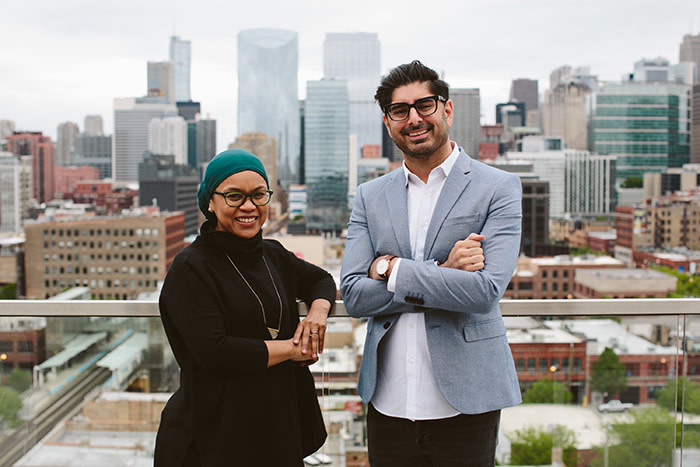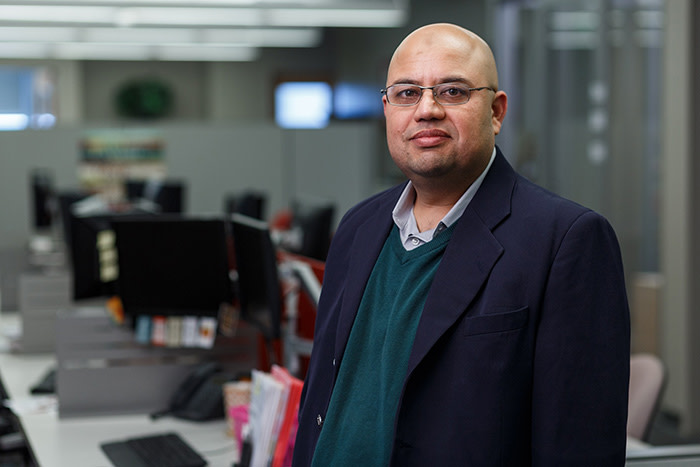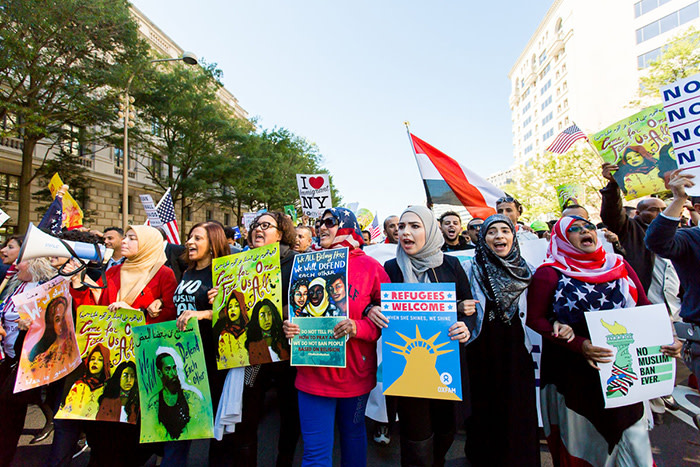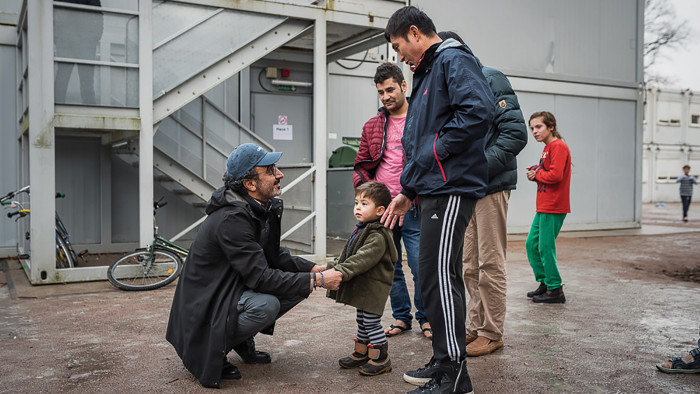State scrutiny has not turned US Muslims away from giving

Roula Khalaf, Editor of the FT, selects her favourite stories in this weekly newsletter.
In 2010, Kashif Shaikh, then a programme officer at the Robert R McCormick Foundation, a Chicago-based charity, established an organisation to serve an under-represented philanthropic community: Muslim Americans. The Pillars Fund has so far given away more than $4m. And, at a time of rising Islamophobia, it is much more than a vehicle for charitable dollars.
“I realised American Muslims didn’t have an institution in the philanthropic sector to advance their priorities,” says Shaikh, who is now the organisation’s executive director. The idea, he says, was to use a collaborative giving model “to be a voice and to represent American Muslim communities”.
Shaikh and the members of the Pillars Fund are not the only Muslims in the US wanting to become more strategic in their giving. “Anecdotally, we see a major increase in formalised [Muslim American] philanthropy,” says Shariq Siddiqui, inaugural director of the Muslim Philanthropy Initiative, which was launched this April at Indiana University’s Lilly Family School of Philanthropy.
This might seem surprising. In the wake of the 9/11 terrorist attacks, Muslim charities came under increased scrutiny and, in some cases, their accounts were frozen by the Treasury Department. “That worried a lot of American Muslim donors, particularly those in the field of finance,” says Shaikh.
More recently, moves by the Trump administration to impose an anti-Muslim travel ban denying nationals from some Muslim-majority countries entry to the US, created renewed anxiety among Muslim Americans. Instead of retreating, however, they have stepped up their civic and philanthropic activities. “Many people thought the scrutiny would create fear in the Muslim community to the point where there would be a decline in philanthropy,” says Siddiqui. “But we see an increase in giving in the Muslim community.”

Muslims account for only about 1.1 per cent of the US population, according to the Pew Research Center, a Washington DC-based think-tank. It is a diverse community, however, both in branches of Islam, from Sunni and Shia to Ismaili, to regions of origin, from the Middle East to Africa and south Asia.
Philanthropy has strong cultural roots in Islam. Zakat and sadaqah are the two main forms of charity. Zakat — one of the fundamental concepts referred to as the five pillars of Islam — requires Muslims to give away at least 2.5 per cent of their annual income and other assets above a threshold that includes covering living expenses. Sadaqah contributions, which come on top, are considered voluntary.
“There is a very big emphasis on charity and giving in Islam,” says Muhi Khwaja, co-founder and director of development and philanthropy at the California-based American Muslim Fund, a community foundation that was created in 2016.
Traditional giving imposes certain limits on donors, however. For example, while opinions differ, some say zakat recipients cannot include non-Muslims. Zakat specifies eight recipients of charity, including the poor or needy as well as those authorised to distribute funds to them, stranded travellers and those fighting for a religious cause.
The idea behind the American Muslim Fund was to enable donors to go beyond these forms of Islamic philanthropy. The fund offers individuals and families formal support for their giving by helping them set up vehicles such as donor-advised funds, giving circles and endowments. “We wanted the Muslim community to see that they had more opportunities than just the traditional methods of giving,” Khwaja explains.

Partly because of the increased scrutiny of Muslim non-profits, the fund also conducts due diligence on charitable organisations on behalf of its donors, through reviews of tax and financial documents and conversations with non-profits’ staff and boards.
The creation of the Lilly Family School’s Muslim Philanthropy Initiative was driven by a similar desire to support the growth of Muslim American philanthropy. Its aim is to increase the size of the Muslim philanthropic community in the US and help it become more effective and professional.
It holds symposia and seminars, and running training programmes for non-profits and philanthropic leaders. Given that Muslim American philanthropy is largely uncharted territory, conducting research is also a priority. “One reason for the initiative is that we don’t have enough data,” says Siddiqui.
However, new research is starting to build a picture of how Muslim Americans give. “This year, a philanthropy study we helped fund suggested Muslim American donors give in many similar ways to other Americans,” says Siddiqui.
Like other American donors, Muslims support a wide range of causes. For example, Indian-born Farooq Kathwari, president of retailer Ethan Allen Interiors, works to build bridges between cultures, something he does partly through his role as co-chair of the Muslim-Jewish Advisory Council.
Promoting inclusion and respect for diversity is also a focus for the El-Hibri Foundation. Established in 2001, it commemorates the late Ibrahim El-Hibri, a Lebanese-born telecoms entrepreneur who later focused on life sciences, supporting the development of vaccines. Since his death in 2007 at the age of 70, the fund has been run by his family.
Meanwhile, Turkish-born Hamdi Ulukaya, founder of Chobani, a food company that is the biggest maker of Greek yoghurt in the US, devotes his philanthropic resources to reducing income and wealth inequality. Through his Tent foundation, based in New York, he harnesses private sector funding to support refugees around the world.
Ulukaya, who has signed The Giving Pledge (the commitment plan founded by billionaires Warren Buffett and Bill Gates, under which signatories promise to give away more than half of their wealth) also funds training for young Turkish entrepreneurs in the US.

Education is a priority for many Muslim American donors, such as Pakistani-American philanthropist Safi Qureshey, co-founder and chief executive of AST Research, a technology company Samsung acquired in the 1990s for $377m. As a former tech entrepreneur, he seeks innovation in his philanthropy. “I look for something that can be scaled up and can have an impact through technology, like distance education,” he says.
Like many Muslim American immigrant donors, Qureshey funds programmes based not just in the US but also in his country of origin, such as an initiative promoting education for deaf children run by Pakistan’s Family Educational Services Foundation.
But while for older Muslim Americans, sending charitable dollars back home remains a priority, Shaikh sees this shifting. “It’s changing because if you look at the demographics of the Muslim community in this country, it’s very young, so more and more efforts are about the US,” he says.
This informs Shaikh’s philanthropy, with Pillars Fund money awarded, for example, to the Children’s Museum of Manhattan and the Brooklyn Historical Society. “My ‘back home’ is New York,” he says. “The communities I want to serve are the communities that I grew up with — and that’s a different path from older immigrants.”
Comments